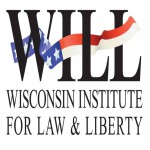Wisconsin Supreme Court to Hear Arguments in WILL Religious Liberty Lawsuit
The News: The Wisconsin Supreme Court granted a request from the United States Court of Appeals for the Seventh Circuit, Thursday, to consider a question of Wisconsin state law in St. Augustine v. Taylor, a religious liberty lawsuit first filed by the Wisconsin Institute for Law & Liberty (WILL) in 2016. The state Supreme Court will decide how Wisconsin’s Department of Public Instruction (DPI) determines whether two or more schools are “private schools affiliated with the same religious denomination.” In the case before the court, DPI is determining the availability of a government benefit – transportation aid – based on the state agency’s definition of “Catholic.”
The Wisconsin Supreme Court scheduled oral arguments for 9:45 am on May 4, 2021.
Background: Wisconsin provides transportation aid to qualifying private school students as long as there is not an overlapping attendance area between private schools that are affiliated with one another, or more specifically, affiliated with the same sponsoring group. In this case, DPI and Friess Lake School District denied St. Augustine students busing rights because there is an Archdiocesan Catholic school in the attendance area.
But St. Augustine is independent and unaffiliated with the Archdiocese. In this case, Friess Lake and DPI are determining the definition of Catholic and withholding government benefits until St. Augustine agrees not to call itself “Catholic.”
In Court: WILL filed this case in state court in August of 2016. It was moved to federal court where the United States District Court for the Eastern District of Wisconsin ruled against St. Augustine in June 2017. In October 2018, a three-judge panel at the Seventh Circuit Court of Appeals affirmed the lower court ruling 2-1. In a vigorous dissent Judge Kenneth Ripple warned that the decision “raises haunting concerns about the future health of the Religion Clauses [of the First Amendment] in this circuit.” The decision was also criticized in an article in the June 2019 edition of the Harvard Law Review.
Then, WILL sought review at the United States Supreme Court in March 2019. The Court granted certiorari, vacated the decision of the Seventh Circuit Court of Appeals, and remanded the case back to the Seventh Circuit in July 2020 in light of the 5-4 decision in Espinoza v. Montana Department of Revenue. Espinoza v. Montana Department of Revenue held that a rule barring families from using a tax-credit scholarship to attend religious schools violates the First Amendment’s Free Exercise Clause.
On remand, following supplemental briefing, the Seventh Circuit certified a question relating to the interpretation of Wisconsin’s transportation statutes to the Wisconsin Supreme Court.
Read More:
- “US Supreme Court Seventh Circuit to Reconsider Decision in WILL Religious Liberty Case,” July 6, 2020
- “When is a Catholic school not just another Catholic school?” TMJ4, April 9, 2019
- “WILL Asks U.S. Supreme Court to Review Religious Liberty Case,” March 14, 2019
NOTE: This press release was submitted to Urban Milwaukee and was not written by an Urban Milwaukee writer. While it is believed to be reliable, Urban Milwaukee does not guarantee its accuracy or completeness.
Mentioned in This Press Release
Recent Press Releases by Wisconsin Institute for Law & Liberty
WILL Wins Preliminary Injunction in Defense of 1st Amendment
Apr 7th, 2023 by Wisconsin Institute for Law & LibertyLawsuit is a part of WILL’s Preserving Democracy Project























Will a decision ruling that school boards can not make determinations of religious entities will have a major impact on the school choice program? This could mean that any group claiming to be a religious entity could demand funding their schools. This could include cults and right wing extremist militias with religious views.